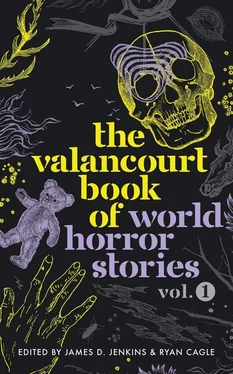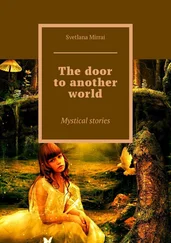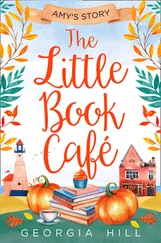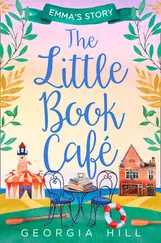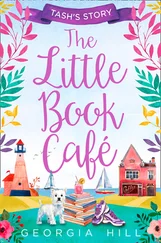I should have used garlic, whereas my mother used onions, which didn’t possess any spiritual or symbolic power. Onions are unfit for keeping the dead on the other side, apparently.
I was not aware of this as a child. I was weary and exhausted after finding the disturbed grave. I felt sick, and for a while I had a serious wish to die and have this whole thing over with.
It only struck me at night that Vili might not return in the shape I remembered him. That he might resemble Nyinyi – and I started to be scared. For he swore to come back for me, didn’t he? Didn’t he plan to take revenge on the one who gave him life and death? I was certain then that he would return for me to drag me with him into the hole I dug for him in the back yard with my bare two hands.
I was not wrong.
The house went dark at midnight – the lights went out on the street as well. Power outage. Darkness surrounded me like thick cotton wool. I was paralyzed. My mother was asleep, my father on a business trip. I started to whimper, but I didn’t feel ashamed even back then, for this was the whimper of an animal in the mouth of the predator.
I heard a noise from downstairs, then the voice of something heading up the stairs. The house was filled with the smell of the grave. Some hours earlier I had considered death to be a momentary blessing, but now I felt that death was not the end – something much worse was waiting, and it was coming for me.
I could hear Vili’s voice again, louder and louder as he approached.
Only it was not Vili anymore; wherever he was after I’d killed him and before he returned, he brought a piece of that place with him. His voice was the voice of death, like the munching of a thousand worms, it meant nothing but itself, emptiness – but to my terror, beyond the sound of maggots and decay it was the voice of my grandmother.
Hail the Black Prince! Vili said. Hail the Black Emperor! he shouted, and showed me what the Black Prince was, what the Black Emperors were, for it was impossible to express their nature with words, only with dreams and images; and I fell on my knees and prayed to them, the Black Lords. I was ready to worship anything just to prevent Vili from taking me to the bottom of the grave, as fodder to the Lords, as fodder to my grandmother who, at this time, I didn’t even know was dead.
By then, I could hear Vili dragging himself towards my door. He smelled of rot and onion, and he tried to speak with a real voice, but whatever he meant to say, death and the earth he was choking on impeded him from doing so. He only growled quietly.
He stopped in front of my room; the odor of death became insupportable. I was struck by the waves of genuine hate from under the doorstep. I knew that Vili would take me to where he had come from, and something changed in me.
I’ll give you anything, just let me live, I whispered because I couldn’t even speak, you can take anything, you can take anyone, anyone but me! Please!
I wasn’t taking the harder path then. Vili wouldn’t have approved were he alive. Alas, he was not.
Vili waited a few seconds, then he went down the hallway, and I crawled under my bed and trembled until the morning came. I thought I wouldn’t sleep, but exhaustion got the better of me.
When I woke up, in the daylight I thought it had only been a bad dream. Actually, nothing had happened. According to my therapist, everything I experienced or perceived as an experience that night was completely normal, a child’s mind struggling with the inconceivable. In the morning, I thought I would go to school as usual, but I wouldn’t talk to my friends anymore. I would leave all this plush toy stuff behind, after all it was indeed time for me to grow up. I crept out from under the bed and went to the kitchen to have breakfast.
She was drinking chamomile tea, I could already smell it from afar. My mother was standing by the counter with a teacup in front of her. I stepped into the kitchen and greeted her, but she didn’t reply. The odd smile on her face, some sort of an idiotic grin, scared me to death. She gazed at one spot, senseless and emotionless, and I felt a knot forming in my throat. I called for her, but she didn’t react. Her hand rested on the mug, but she wouldn’t say a word, wouldn’t move, and I got furious, since everything was her fault, everything; that I was there, that I was alive, that she killed my toy, killed my childhood, and now she was not even able to say Good morning ! Something snapped inside me, and I did the unimaginable. I stepped up to her and shook her as if I was shaking a tree to make its crop fall down.
My mother’s teeth fell out of her mouth, her glass eyes dropped and clattered on the counter. Her skin opened up because there was no sewing to hold her together, her hair fell off her head.
Her body unraveled, and there was nothing left in my hands but a handful of cotton wool.
Translated from the Hungarian by Luca Karafiáth
Cristina Fernández Cubas
THE ANGLE OF HORROR
Cristina Fernández Cubas ( b. 1945) has been called one of the most important Spanish writers to emerge since the end of the Franco dictatorship and has been credited with inaugurating ‘a renaissance in the short story genre in Spain’. She is the author of novels, short stories, drama, memoirs and biography, and in 2016 won the National Literature Prize for Narrative and the Premio de la Crítica Española for her collection Nona’s Room . Reviewing that book for The New York Times , critic Terrence Rafferty wrote that Cubas is ‘most interested in the ambiguities and periodic disturbances that plague the imagination, and reports on them with the appropriate sense of awe, even of dread. In the territory of the imagination, the threat of madness is never too far away, a dark cloud hovering’, a judgment equally applicable to the following story. ‘The Angle of Horror’, first published in 1996, is by now considered a classic of Spanish horror fiction and is often reprinted in Spanish-language anthologies, although mysteriously it has never previously appeared in English.
Now, when she knocked on the door for the third time, looked through the keyhole without seeing anything, or paced angrily along the rooftop terrace, Julia realized she should have acted days ago, the very moment she discovered that her brother was hiding a secret, before the family took matters into their own hands and built up a fence of interrogations and reprimands. Because Carlos was still there. Locked in a dark room, feigning a slight indisposition, abandoning the solitude of the attic only to eat, always reluctantly, hidden behind opaque sunglasses, taking refuge in an unusual and exasperating silence. ‘He’s in love,’ their mother had said. But Julia knew that his strange attitude had nothing to do with the vicissitudes of love or disappointment. That’s why she had decided to stand guard on the top floor, next to the bedroom door, scrutinizing the slightest sign of movement through the keyhole, waiting for the summer heat to force him to open the window that looked out on the rooftop. A long and narrow window, through which she would leap in a single bound, like a pursued cat or the shadow of one of the sheets drying in the sun, an appearance so rapid and unexpected that Carlos, overcome by surprise, would have no other choice but to speak, at least to ask her, ‘Who gave you permission to burst in like that?’ Or else: ‘Get lost! Don’t you see I’m busy?’ And she would see. Would finally see what her brother’s mysterious activities consisted of, would understand his extreme paleness and would rush to offer him her help. But she had been keeping a close watch for over two hours and was starting to feel ridiculous and humiliated. She abandoned her lookout post by the door, went out onto the rooftop and once again counted, as she had done so many times over the course of the afternoon, the defective and broken tiles, the plastic clothespins and the wooden ones, the exact number of steps that separated her from the long, narrow window. She knocked on the window glass and heard herself say in a tired voice: ‘It’s me, Julia.’ Really she should have said, ‘It’s still me, Julia.’ But what did it matter now? This time, however, she pricked up her ears. She thought she heard a distant groan, the creaking of the bed’s rusty springs, some shuffling steps, a metallic sound, again a creak, and a clear and unexpected: ‘Come in. It’s open.’ And at that moment Julia felt a shudder very similar to the strange tremor that ran through her body days earlier, when she realized, suddenly, that something was happening to her brother.
Читать дальше
